Johannes Debus
Conductor
Music Director Canadian Opera Company (COC)
“If the boundaries of my language are the boundaries of my world, then every new piece is a passage to somewhere new. The works give us the chance to enter new dimensions, ones less limited than what we encounter in our daily lives.”
Johannes Debus
- Biography
- Images
- Programme
- Schedule
- Videos
- Links
- Contact
Biography

The career of many conductors begins in front of their own mirror. Johannes Debus recounts how, as a child, he conducted Beethoven's Eroica and was teased by his siblings. “Why don't you just play air guitar?” they would say. However, Debus truly realized the transformation of artistic gestures into music at the age of fourteen when he watched a Bruckner concert with Günter Wand on television in his home in Speyer. “I understood the mystical synergy that hand movements, gestures, body language, and facial expressions can create, how they can shape a shared musical idea. It was magnetic.”
But unlike magnetism, music for Debus does not arise from the tension between opposing poles. Instead, it emerges from the reciprocal dialogue between conductor and orchestra. “As a conductor, I must take the lead with a conception of the music. I need to have a clear idea of how I want it to be played and how I want to communicate it,” he explains. “At the same time, I must listen to what this group of highly skilled musicians offers, accept it, and try to incorporate it.”
Making music together requires the trust that something can emerge without forcing it. Debus sees it as his responsibility as a conductor to provide this space with boundaries. He is not a maestro in an ivory tower, but rather a builder of a fluid, delicate entity composed of playing and listening. “Once the connection is there, the musicians can and want to function as a collective. Then anything is possible. There is nothing more beautiful than an orchestra on stage with fiery eyes and heartfelt passion.”
His movements have gradually become more focused on the essentials over the years. “Initially, one is highly focused on the choreography and technical aspects of conducting. However, it's not the case that the more you put in, the more you get back,” he explains. His ideal image of conducting: pure music communicated through gestures.
Making music together requires the trust that something can emerge without forcing it. Debus sees it as his responsibility as a conductor to provide this space with boundaries. He is not a maestro in an ivory tower, but rather a builder of a fluid, delicate entity composed of playing and listening. “Once the connection is there, the musicians can and want to function as a collective. Then anything is possible. There is nothing more beautiful than an orchestra on stage with fiery eyes and heartfelt passion.”
His movements have gradually become more focused on the essentials over the years. “Initially, one is highly focused on the choreography and technical aspects of conducting. However, it's not the case that the more you put in, the more you get back,” he explains. His ideal image of conducting: pure music communicated through gestures.
„“COC music director Johannes Debus keeps his 100-plus orchestra on a tight leash, rarely, as so often occurs with “Elektra”, allowing their enthusiasm to drown out the singers. And, while Strauss’s score may have come as a shock in 1909, it is a wondrous marvel for today’s ears when so expertly elucidated by Debus.””The Toronto Star
Debus learned his craft at the Frankfurt Opera, where he began working as a répétiteur in 1998 after completing his conducting studies in Hamburg. As a Kapellmeister, he developed a repertoire ranging from Mozart to Verdi and Adès. “It was fortunate to be able to continuously grow at such an innovative institution for almost ten years,” he reflects. It was during his time in Frankfurt that he also met Hans Werner Henze, with whom he maintained a close friendship until Henze's passing.
Debus has been the music director of the Canadian Opera Company in Toronto since 2009. He is attracted to the city's diversity and openness, and finds artistic stimulation in the company's curiosity and willingness to take risks, which has allowed him to further expand his repertoire. Under his leadership, the Canadian Opera Company, the largest opera house in Canada, has continuously grown in international reputation and visibility. In addition to his conducting commitments, Debus has increasingly devoted himself to teaching. He serves as the director of North America's only orchestral academy specialized in opera in Toronto and regularly conducts concerts with students of the Royal Conservatory Orchestra. He also gives masterclasses at the Aspen Music Festival in Colorado.
Debus describes himself as a transatlantic hybrid. “Having one foot on both continents is very enriching. I have the best of both worlds and try to connect them,” he says. In North America, Debus is a guest conductor with major symphony orchestras such as the Cleveland Orchestra and the Boston Symphony Orchestra. In 2016, he made his debut at the Metropolitan Opera in New York conducting “Salome”. In Europe, Debus conducts the ORF Radio Symphony Orchestra Vienna, the Frankfurt Radio Symphony Orchestra, and the Hallé Orchestra. He has also conducted at prestigious opera houses including the Bavarian State Opera in Munich, the Berlin State Opera (Staatsoper Unter den Linden), the Frankfurt Opera, the English National Opera, and the Opéra National de Lyon. In 2014, he made his debut at the BBC Proms with the Britten Sinfonia, and in 2015, he led a new production of “The Tales of Hoffmann” at the Bregenz Festival. As a guest conductor, he has performed at several international festivals, including the Biennale di Venezia, Schwetzinger Festspiele, Festival d'Automne in Paris, Lincoln Center Festival, Ruhrtriennale, Suntory Summer Festival, and the Spoleto Festival.
Born in 1974, Debus considers himself a generalist. He feels equally at home with Monteverdi and the Viennese classical period as he does with Janáček and 20th-century music. Contemporary music and collaborations with renowned new music ensembles such as Ensemble intercontemporain, Ensemble Modern, Klangforum Wien, and Musikfabrik form an important continuum in his work. “I wouldn't want to miss out on any of this musical diversity,” says Debus. “If the boundaries of my language are the boundaries of my world, then every piece of music is a gateway to a new (sound) world. It provides us with the opportunity to venture into dimensions that are less limited than what we experience in our daily lives.”
2023 / 2024
Debus has been the music director of the Canadian Opera Company in Toronto since 2009. He is attracted to the city's diversity and openness, and finds artistic stimulation in the company's curiosity and willingness to take risks, which has allowed him to further expand his repertoire. Under his leadership, the Canadian Opera Company, the largest opera house in Canada, has continuously grown in international reputation and visibility. In addition to his conducting commitments, Debus has increasingly devoted himself to teaching. He serves as the director of North America's only orchestral academy specialized in opera in Toronto and regularly conducts concerts with students of the Royal Conservatory Orchestra. He also gives masterclasses at the Aspen Music Festival in Colorado.
Debus describes himself as a transatlantic hybrid. “Having one foot on both continents is very enriching. I have the best of both worlds and try to connect them,” he says. In North America, Debus is a guest conductor with major symphony orchestras such as the Cleveland Orchestra and the Boston Symphony Orchestra. In 2016, he made his debut at the Metropolitan Opera in New York conducting “Salome”. In Europe, Debus conducts the ORF Radio Symphony Orchestra Vienna, the Frankfurt Radio Symphony Orchestra, and the Hallé Orchestra. He has also conducted at prestigious opera houses including the Bavarian State Opera in Munich, the Berlin State Opera (Staatsoper Unter den Linden), the Frankfurt Opera, the English National Opera, and the Opéra National de Lyon. In 2014, he made his debut at the BBC Proms with the Britten Sinfonia, and in 2015, he led a new production of “The Tales of Hoffmann” at the Bregenz Festival. As a guest conductor, he has performed at several international festivals, including the Biennale di Venezia, Schwetzinger Festspiele, Festival d'Automne in Paris, Lincoln Center Festival, Ruhrtriennale, Suntory Summer Festival, and the Spoleto Festival.
Born in 1974, Debus considers himself a generalist. He feels equally at home with Monteverdi and the Viennese classical period as he does with Janáček and 20th-century music. Contemporary music and collaborations with renowned new music ensembles such as Ensemble intercontemporain, Ensemble Modern, Klangforum Wien, and Musikfabrik form an important continuum in his work. “I wouldn't want to miss out on any of this musical diversity,” says Debus. “If the boundaries of my language are the boundaries of my world, then every piece of music is a gateway to a new (sound) world. It provides us with the opportunity to venture into dimensions that are less limited than what we experience in our daily lives.”
2023 / 2024
This biography is to be reproduced without any changes, omissions or additions, unless expressly authorized by artist management.
Images

Programme

2024 / 2025
You’ll find the current programs in the IMPRESARIUM of the 24/25 season
Repertoire Opera
Schedule

Videos

Johannes Debus on ELEKTRA
PARSIFAL: "Procession of the Knights of the Holy Grail" | COC Orchestra
Links

Contact

Juliane Scotney
Senior Artist Manager
t: +49 (0)30 414 781 715
 Download Biography:
Download Biography: 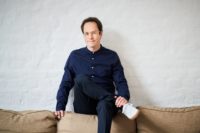


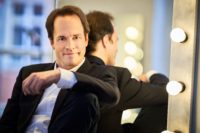
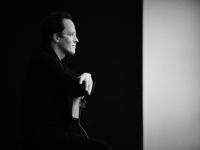
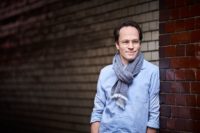
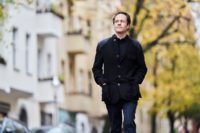
 Opus3Management
Opus3Management Twitter
Twitter


